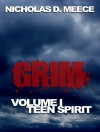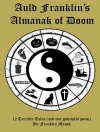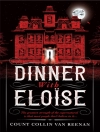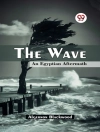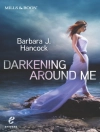May Sinclair’s ‘Uncanny Stories’ is a masterful collection that delves into the realms of the psychological and the supernatural, blending stark realism with eerie elements of the uncanny. Written during the early 20th century, Sinclair employs a narrative style that intersects modernist techniques with traditional storytelling, compellingly engaging with themes of identity, perception, and the human psyche. The stories challenge readers to confront their own fears and insecurities, embodying the tension prevalent in post-Victorian literature while foreshadowing the existential explorations of later writers. Sinclair, a pivotal figure in feminist literature and a contemporary of Virginia Woolf, used her literary career to explore the complexities of human emotion and consciousness. Her deep interest in psychology, influenced by her relationship with the burgeoning field of psychoanalysis, informs the unsettling atmosphere that permeates her work. Drawing from her own life experiences and observations of societal norms, Sinclair’s stories reflect a personal and societal journey through the labyrinth of fear and the unknown. ‘Uncanny Stories’ is highly recommended for readers seeking to immerse themselves in thought-provoking and unsettling narratives that transcend mere horror. Sinclair’s incisive exploration of the human condition reveals the complexities that lurk beneath the surface of everyday life, making this collection essential for both scholars of modern literature and casual readers alike.
Over de auteur
May Sinclair was the pseudonym of Mary Amelia St. Clair (1863 – 1946), a prolific British writer known for her novels, poetry, and literary criticism, and as an active suffragist. Sinclair’s foray into literature began with poetry and critical essays, but she soon established herself as a novelist with a particular interest in exploring the inner lives of her characters, a technique that prefaced the stream of consciousness style of writing. Her interest in psychology, particularly the works of Sigmund Freud and Carl Jung, influenced much of her fiction, with a notable exploration of the human psyche in works like ‘Mary Olivier: A Life’ and ‘Life and Death of Harriett Frean’. Sinclair also contributed to the field of modernist literature; ‘The Three Sisters’ is regarded as a significant work that grapples with issues of women’s independence and free will at the start of the 20th century. Her collection ‘Uncanny Stories’ delves into supernatural fiction, containing tales that fuse her psychological interests with explorations of the paranormal. Sinclair was regarded as an interpreter of modernist thought and was an active member of the Woman Writers’ Suffrage League. Her contributions to literature and feminist thought remain influential, rendering Sinclair a notable figure in the annals of early 20th-century British literature.


